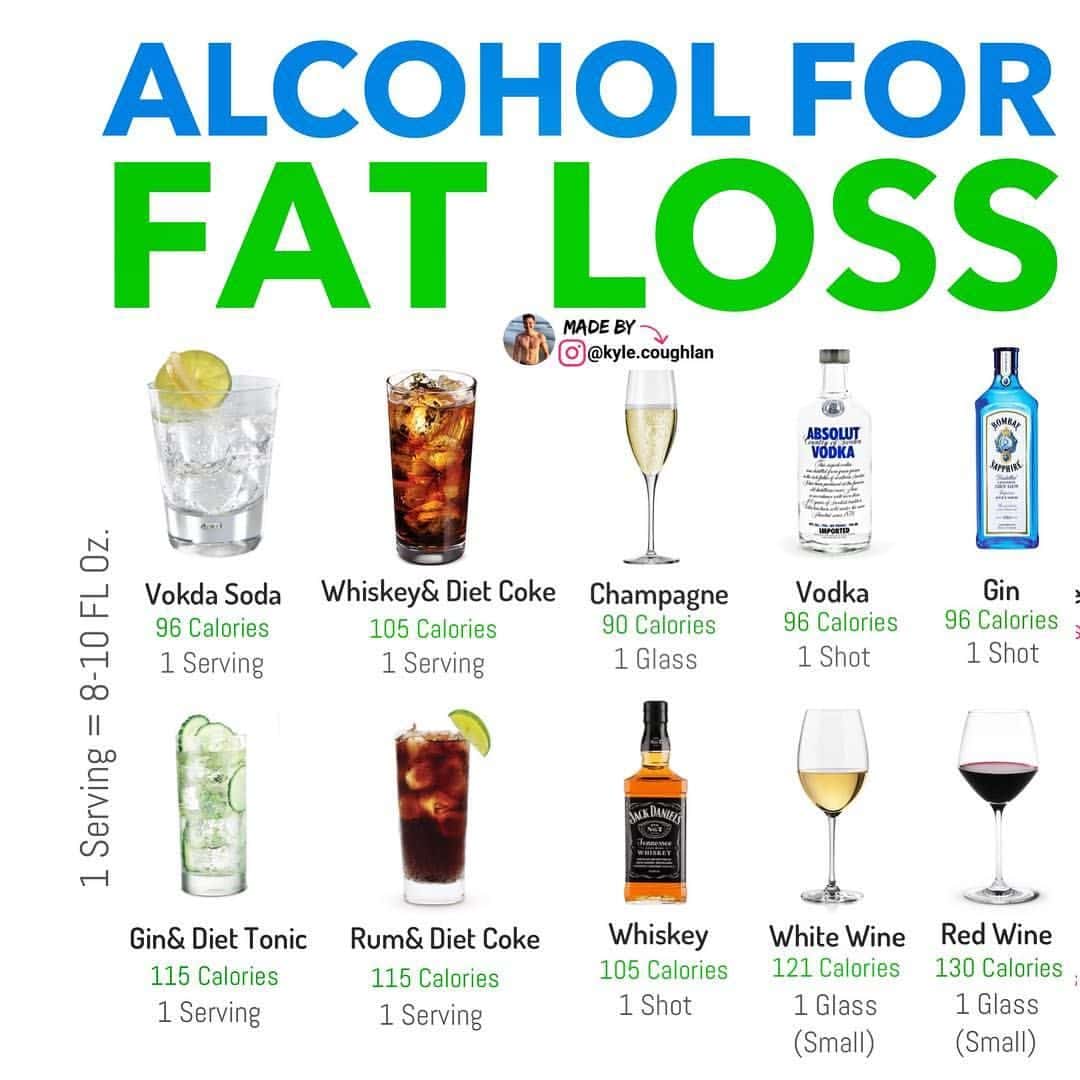Introduction to Vodka and Weight Loss: Separating Fact from Fiction
In recent years, the notion that drinking vodka can assist with weight loss has gained traction among health enthusiasts and casual drinkers alike. This belief is primarily rooted in vodka’s reputation as a low-calorie alcoholic option compared to other spirits and mixed drinks. However, understanding the nuanced effects of alcohol on the body is crucial before incorporating vodka into any weight loss regimen.
Vodka, like other spirits, contains calories derived from alcohol, but it lacks the added sugars and carbohydrates found in many other alcoholic beverages. This characteristic has led some to consider it a “healthier” choice when attempting to shed pounds. Despite these perceptions, the relationship between alcohol consumption and weight management is complex, influenced by various physiological and behavioral factors.

Alcohol, including vodka, is metabolized differently than nutrients such as carbohydrates, proteins, and fats. When consumed, alcohol is prioritized by the body for metabolism, effectively pausing the oxidation of fats and other nutrients. This means that while you might be consuming fewer calories with vodka, the presence of alcohol can temporarily inhibit the body’s ability to burn fat, potentially counteracting weight loss efforts.
Moreover, alcohol consumption can impact appetite regulation, often leading to increased caloric intake from food. The tendency to make poor dietary choices while under the influence of alcohol further complicates the picture. It is also important to consider the potential for overconsumption, which can negate any perceived low-calorie benefits.
In the following sections, we will explore the scientific evidence surrounding vodka and weight loss, examining both the potential benefits and the drawbacks. By delving into these aspects, we aim to provide a comprehensive understanding of how vodka fits into the broader context of weight management and help readers make informed decisions about their dietary and lifestyle choices.
Understanding the Caloric Content of Vodka
In the realm of alcoholic beverages, vodka stands out for its relatively low caloric content. A standard serving of vodka, which is typically 1.5 ounces, contains around 96 calories. This is significantly lower compared to other popular alcoholic drinks. For instance, the same serving size of whiskey or rum can contain about 110 calories, while a glass of wine (5 ounces) can range from 120 to 130 calories, depending on the type. Beer, especially craft varieties, can range even higher, with a single 12-ounce serving often containing upwards of 150 calories.

The appeal of vodka for those aiming to maintain or lose weight lies in its simplicity and versatility. Vodka’s neutral flavor makes it a favored base for a variety of mixed drinks, allowing consumers to control the caloric content more effectively. However, it is crucial to note that while vodka itself is low in calories, the mixers and additional ingredients used in cocktails can drastically increase the overall caloric intake. Sweetened beverages like soda, tonic water, and fruit juices can add a significant number of calories. For example, a vodka tonic can easily exceed 200 calories per serving depending on the amount and type of tonic used.

Understanding the caloric content of vodka and the impact of mixers underscores the importance of moderation and portion control. Opting for low-calorie mixers such as soda water with a splash of lime or using infusions of natural flavors can help keep the caloric intake in check. Additionally, being mindful of portion sizes can prevent excessive calorie consumption. It is easy to overlook the cumulative effect of multiple servings, which can quickly add up and counteract any potential benefits of choosing a lower-calorie alcoholic option.
In summary, while vodka can be a more calorie-conscious choice among alcoholic beverages, the key to its role in weight management lies in moderation, awareness of mixers, and portion control. By making informed choices, individuals can enjoy their drink while maintaining their health and fitness goals.
The Metabolic Effects of Alcohol on the Body
Alcohol consumption, including vodka, has a significant impact on metabolic processes within the body. When consumed, alcohol is primarily metabolized by the liver. The liver prioritizes alcohol metabolism over other metabolic functions due to its toxic nature. This prioritization can interrupt the normal processing of nutrients, leading to potential disruptions in metabolism. Unlike carbohydrates, proteins, and fats, alcohol provides “empty calories” that lack essential nutrients.

Upon ingestion, alcohol is converted to acetaldehyde, a toxic compound, and subsequently to acetate, which is then used for energy. This metabolic pathway can inhibit the oxidation of fatty acids, leading to an accumulation of fats in the liver and potentially contributing to weight gain. Furthermore, alcohol’s influence on the central nervous system can affect appetite regulation. It can stimulate appetite, making individuals more likely to consume additional calories, often from less healthy food choices.

Several scientific studies have investigated the relationship between alcohol consumption and weight management. A study published in the American Journal of Clinical Nutrition found that moderate alcohol consumption does not necessarily lead to weight gain, provided it is part of an overall balanced diet and healthy lifestyle. However, excessive alcohol intake is strongly associated with an increased risk of obesity and metabolic disorders.
Expert opinions suggest that moderate vodka consumption, defined as up to one drink per day for women and up to two drinks per day for men, may be incorporated into a balanced diet without significantly hindering weight loss goals. Nevertheless, the caloric content of vodka and the potential for disrupted metabolic processes should not be overlooked. Maintaining an awareness of one’s overall caloric intake and ensuring alcohol consumption remains within moderate limits is crucial for effective weight management.
Balancing Vodka Consumption with a Healthy Lifestyle
When it comes to enjoying vodka while maintaining a healthy lifestyle, moderation and mindful choices are key. Although vodka itself is relatively low in calories compared to other alcoholic beverages, the mixers and additional ingredients can significantly impact your calorie intake. Opt for low-calorie mixers such as soda water, diet tonic, or fresh lemon juice to keep the calorie count in check. Avoid sugary sodas and energy drinks, which can add unnecessary calories and sugars to your drink.
Setting limits on alcohol intake is crucial for both health and weight management. The Centers for Disease Control and Prevention (CDC) recommends that men limit themselves to two drinks per day, while women should stick to one. Consuming alcohol in moderation can help prevent unwanted weight gain and reduce the risk of other health issues associated with excessive drinking.
Balancing alcoholic beverages with nutritious food choices is another important aspect. Pair your vodka with healthy snacks like vegetables, lean proteins, and whole grains. This not only helps to mitigate the empty calories from alcohol but also ensures that your body receives essential nutrients. Avoid high-calorie, processed foods that can contribute to weight gain and other health problems.
Regular exercise and mindful eating habits are fundamental in maintaining a balanced lifestyle. Engaging in physical activities that you enjoy, such as walking, cycling, or yoga, can help offset the calories consumed from occasional vodka drinks. Additionally, practicing mindful eating by paying attention to portion sizes and choosing nutrient-dense foods can support overall well-being.
Lastly, it is advisable to consult with healthcare professionals before making any significant changes to your diet or alcohol consumption, particularly in the context of weight loss. They can provide personalized advice and ensure that your choices align with your health goals and needs.



